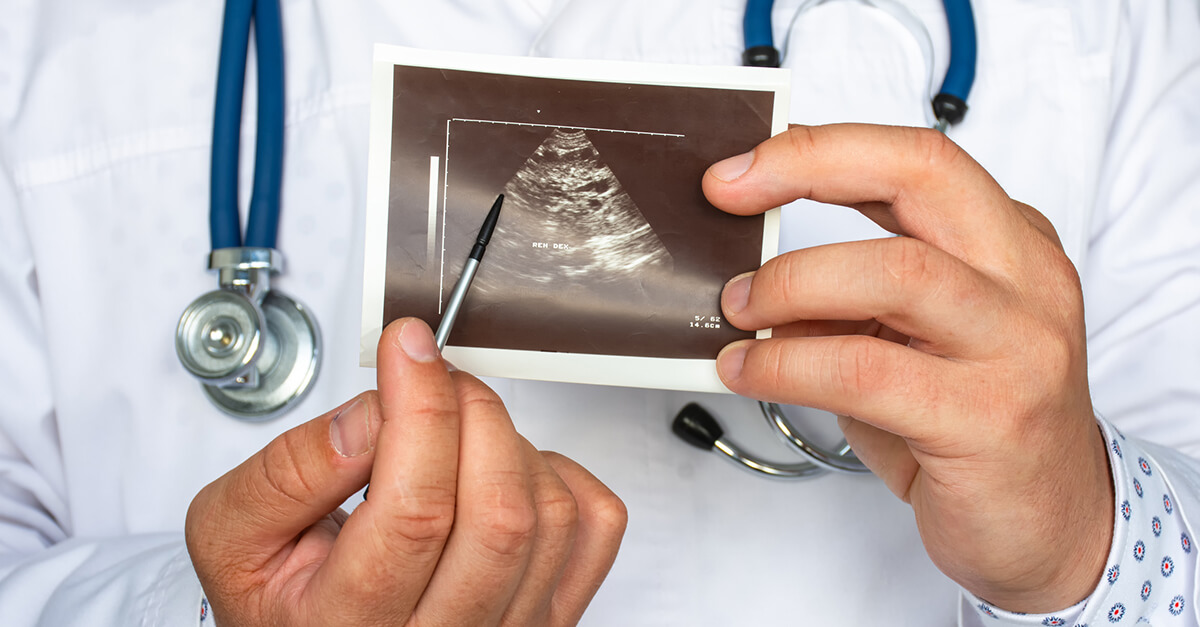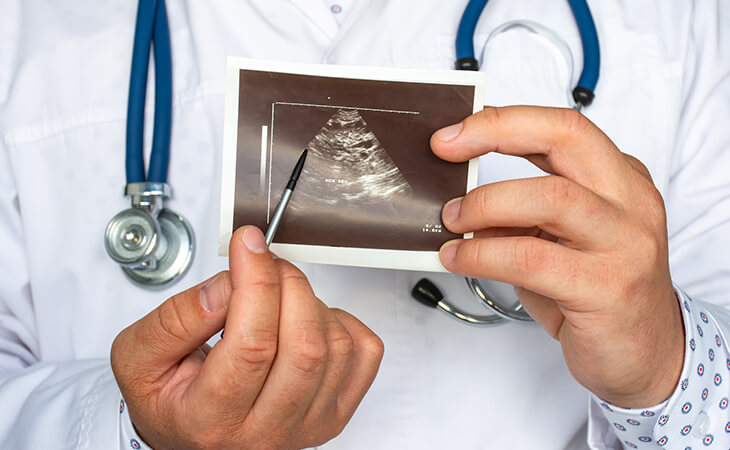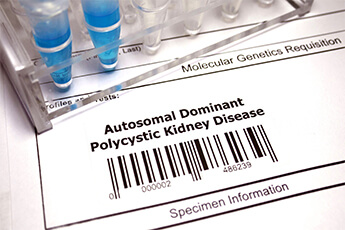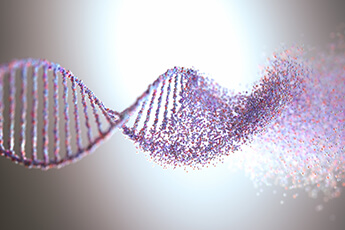What is polycystic kidney disease (PKD)?


Polycystic kidney disease (PKD) is one of the most common genetic (inherited) conditions. It affects nearly half a million Americans. The prefix “poly” means many, and “cystic” refers to cysts, which are sacs filled with fluid. People with PKD develop so many cysts in their kidneys that the organs become too large and can’t function as they should.
From the community: “I was diagnosed with polycystic kidney disease last year. I am 60 yo and a female. Just recently my bood pressures have been way out of control with diastolic pressures in the 100-120 range. All my kidney function test are within range yet my doc keeps adding more and more meds which make me feel worse and my BP's are still out of control. Help!!! Any and all advice would be appreciated. My quality of life is down the tubes at this point and I just want some peace of mind back...” – Inspire member
How common are kidney cysts?
Kidney cysts are relatively common. It’s estimated that up to half of people over 50 develop a few cysts, typically in one kidney. Most are about the size of a pea, but some can grow as large as a baseball. These cysts are typically harmless. They’re unlikely to cause kidney cancer or require treatment.
Most people with a few kidney cysts are unaware they have them. They may find out when seeking treatment for another issue like a urinary tract infection or kidney stones. But PKD is more problematic. People with this condition develop thousands of cysts in both kidneys, and the cysts cause damage. PKD is a type of chronic kidney disease (CKD).
What is chronic kidney disease (CKD)?
The main job of your kidneys is to filter impurities from your blood and pass them out of your body in urine. Kidney disease occurs when something damages your kidneys, making the organs work extra hard to remove wastes from your body.
When you have chronic kidney disease (CKD), your kidneys are constantly losing function. It’s a progressive, irreversible disease. Once you have kidney damage, you can’t undo it. But you can take steps to slow the disease progression.
If your kidneys continue to fail, wastes can build up in your blood. You may experience symptoms like high blood pressure, foamy urine, extreme fatigue, and dry, itchy skin. In time, you may develop kidney failure. When this occurs, your body will need medical help in the form of dialysis or a kidney transplant to remove toxins from your body.
High blood pressure and diabetes cause most cases of chronic kidney disease. But people with PKD are also at high risk.
What causes polycystic kidney disease (PKD)?
A gene change, or mutation, causes PKD. A parent who carries this gene change can pass it to their biological children. In rare instances, a person with no family history of PKD develops the disease. This is a spontaneous, or de novo, mutation. PKD doesn’t discriminate. It affects all ages, genders, races, and ethnicities.
What are the types of polycystic kidney disease (PKD)?
Different genetic changes cause two types of PKD:
Autosomal dominant polycystic kidney disease (ADPKD): ADPKD is the most common polycystic kidney disease, affecting as many as 1 in 400 to 1 in 1,000 people. People with this type inherit a changed PKD1 or PKD2 gene. This gene mutation is present at birth, but symptoms don’t typically appear until you’re in your 30s, 40s, or 50s. Your doctor may call it adult PKD, although the condition sometimes affects children. Symptoms include back or side pain, blood in your urine, high blood pressure, and eventually, kidney failure.
Autosomal recessive polycystic kidney disease (ARPKD): Doctors call this type infantile PKD because symptoms appear soon after birth. Some signs, like enlarged kidneys, may be noticed on prenatal ultrasounds during a woman’s pregnancy. ARPKD affects approximately 1 in 20,000 children who inherit a changed PKHD1 gene from both parents. These kids develop kidney failure before they reach adulthood. They also develop liver cysts.
From the community: “My son is 18, was diagnosed with WD 3 yrs. ago, which is effecting his liver. He is concurrently having kidney problems that include growing and multiplying cysts, calcification and crystallization, and high blood pressure. His nephrologist is not certain yet but suspects my son may have polycystic kidney disease. He however doesn't believe that it is related to the WD. I'm curious if others with WD have also been diagnosed with PKD?” – Inspire member
What are PKD symptoms?
Adults with ADPKD may not have symptoms until the cysts are about half an inch in size or larger. ADPKD symptoms include:
blood in your urine (hematuria)
chronic back and side pain
headaches
high blood pressure
kidney stones
urinary tract infections (UTIs)
Children with ARPKD may have:
enlarged kidneys
low amniotic fluid in the womb
low birth weight, small size, or failure to grow
How is PKD diagnosed?
Doctors use imaging scans like ultrasounds and CT scans to diagnose kidney cysts and PKD. If you have PKD, you may also get regular MRIs to check the progression of the disease. You may also get a genetic test (DNA test) to check your blood for a gene mutation linked to PKD.
What are PKD treatments?
Treatments for PKD vary depending on the disease type and your specific symptoms. PKD treatments include:
oral medicine to slow the growth of cysts and improve kidney function in people with ADPKD
antibiotics for bladder infections, kidney infections, and urinary tract infections (UTIs)
blood pressure medications
mechanical ventilation for children with ARPKD who have breathing problems due to enlarged kidneys pressing against their lungs
pain relievers like acetaminophen to ease discomfort caused by enlarged cysts (avoid nonsteroidal anti-inflammatory drugs or NSAIDs, which can harm the kidneys)
surgery to drain or remove an enlarged cyst
What happens if PKD causes kidney failure?
When your kidneys work at less than 15% of possible function, you have stage 5 kidney failure or end-stage renal disease (ESRD). PKD accounts for 2 out of every 100 cases of kidney failure each year. Approximately half of all people with ADPKD develop kidney failure by age 70. And ARPKD often causes kidney failure during childhood. Some children also experience liver failure from liver cysts.
Kidney failure is life-threatening. Kidney failure treatments include:
hemodialysis using a machine, or peritoneal dialysis using your abdominal (peritoneal) cavity, to cleanse your blood
kidney transplant to replace a diseased kidney with a healthy kidney from a living or deceased donor
Can you slow the progression of PKD?
These steps can slow the development of kidney cysts and may keep your kidneys functioning longer:
avoid alcoholic and caffeinated beverages
drink plenty of water every day
don’t smoke or use nicotine products
manage high blood pressure and diabetes
reduce your sodium (salt) intake
stay physically active and maintain a healthy weight
Sources
Kidney failure (ESRD) causes, symptoms, and treatments. American Kidney Fund.
Polycystic kidney disease (PKD) symptoms, treatments, and causes. American Kidney Fund.
Kidney cysts. Cleveland Clinic. January 2021.
Kidney disease/chronic kidney disease. Cleveland Clinic. December 2020.
Polycystic kidney disease. MedlinePlus. August 2020.
Autosomal dominant polycystic kidney disease National Institute of Diabetes and Digestive and Kidney Diseases. January 2017.
Autosomal recessive polycystic kidney disease National Institute of Diabetes and Digestive and Kidney Diseases. January 2017.
What is polycystic kidney disease? National Institute of Diabetes and Digestive and Kidney Diseases. January 2017.
Chronic kidney disease. National Kidney Foundation.
Disclaimer
Member comments are lightly edited for length and to remove identifying information but are otherwise reproduced as they appear in the community as part of public posts.
This content is for general informational purposes only and does not necessarily reflect the views and opinions of any organization or individual. The content should not be used as a substitute for professional medical advice, diagnosis, or treatment. Please consult your healthcare provider about any questions you may have regarding a medical condition.




